Top 7 Crypto Wallet Multi-Chain APIs

Introduction
In the diverse and rapidly evolving landscape of cryptocurrency, the ability to seamlessly interact with multiple blockchains has become a necessity for users and developers alike. This need has led to the rise of multi-chain wallets, which offer a unified interface for managing assets across various networks. However, the backbone enabling these wallets to function efficiently across different ecosystems is the Multi-Chain Wallet APIs. These APIs are crucial for facilitating transactions, querying balances, and ensuring the compatibility of wallets with a wide range of cryptocurrencies and blockchain technologies. This exploration into the top multi-chain wallet APIs aims to highlight the pivotal role these tools play in the cryptocurrency space, offering insights into their functionality, importance, and the features that set them apart.
Understanding the Significance of Multi-Chain Wallet APIs
Multi-chain wallet APIs represent the connective tissue between wallets and the multitude of blockchain networks that comprise the cryptocurrency world. They empower wallets to perform essential functions such as sending and receiving transactions, fetching transaction histories, and managing addresses across various blockchains. This interoperability is vital for users seeking to engage with decentralized applications (DApps), swap tokens, or manage investments without the hassle of using multiple wallets or platforms. Furthermore, for developers, these APIs provide a streamlined and efficient pathway to integrating multi-chain functionality into their applications, enhancing user experience and broadening the usability of their products. The significance of multi-chain wallet APIs extends beyond mere convenience, embodying the principles of decentralization and accessibility that are central to the ethos of the blockchain community.
Key Features to Look for in Multi-Chain Wallet APIs
When evaluating multi-chain wallet APIs, several critical features stand out as essential for developers and businesses aiming to leverage these tools effectively:
- Compatibility: The API should offer extensive support for a variety of blockchains and tokens, ensuring users can manage their assets across the most popular networks as well as emerging ones.
- Security: Given the critical importance of security in managing digital assets, the API must incorporate robust security measures, including encryption protocols and secure authentication methods, to protect against unauthorized access and potential threats.
- Functionality: Look for APIs that provide a comprehensive set of functions, including but not limited to, transaction broadcasting, address generation, balance queries, and smart contract interaction capabilities.
- Ease of Integration: The best APIs are accompanied by detailed documentation, SDKs, and active developer support communities. These resources significantly ease the integration process, allowing developers to implement functionalities with minimal hassle.
- Performance and Reliability: The API's ability to handle high volumes of transactions reliably, with minimal latency and downtime, is crucial for maintaining a seamless user experience and ensuring transactions are processed in a timely manner.
Choosing a multi-chain wallet API that excels across these dimensions is crucial for developing applications that are not only functional and secure but also aligned with the needs and expectations of the end-users in the dynamic world of cryptocurrency.
Mobula API: Your Gateway to Multi-Chain Functionality
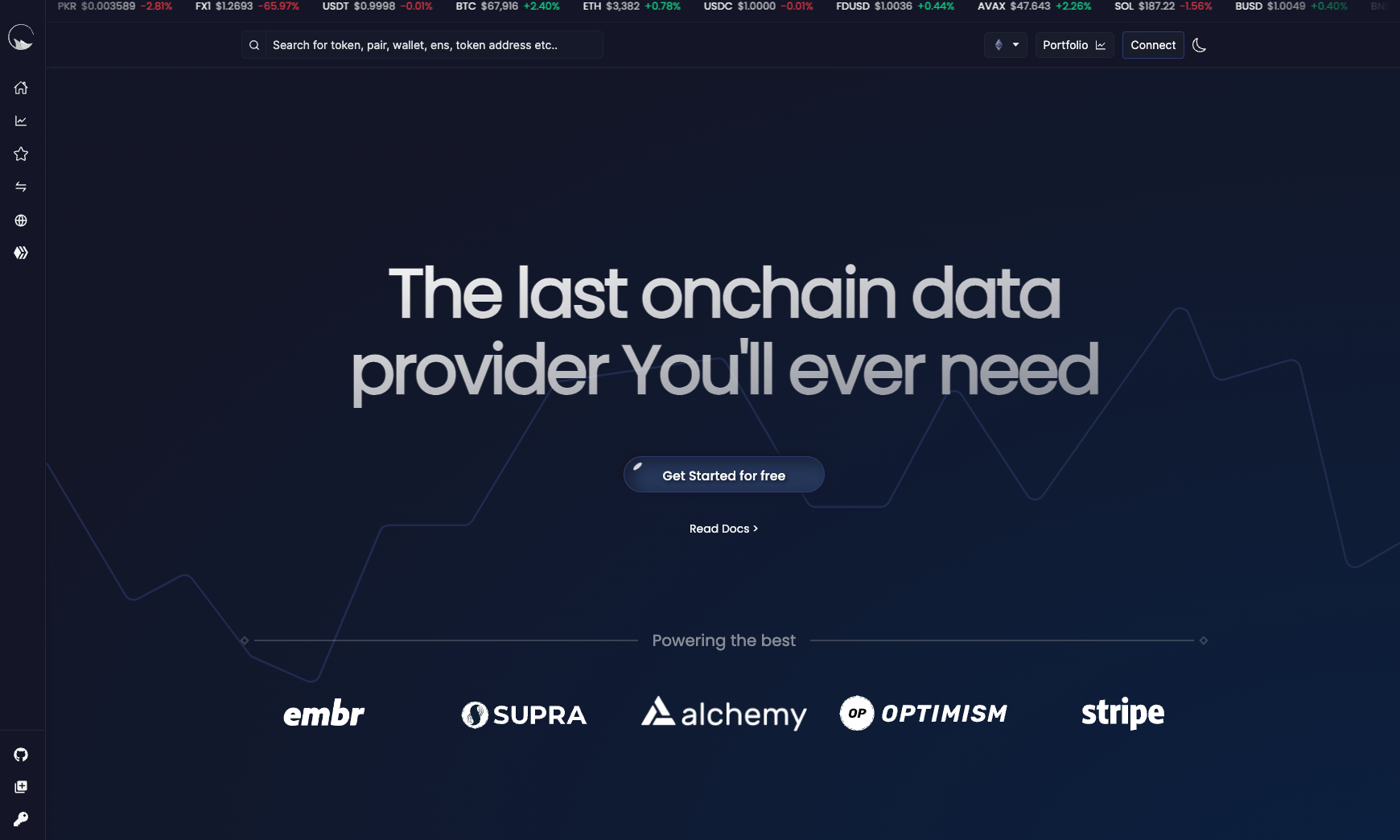
Comprehensive Integration and Security: Mobula API stands out with its capability to effortlessly bridge wallets across more than 50 blockchain networks, encompassing a wide variety of cryptocurrencies and tokens. This extensive blockchain compatibility ensures that users have seamless access to their assets, regardless of the network. Security is paramount within the Mobula ecosystem, with sophisticated encryption and secure protocols safeguarding every transaction and interaction. This dual focus on comprehensive integration and stringent security measures enables developers to craft wallets that are not only versatile but also robust against threats, providing peace of mind in the volatile crypto market.
Rich Features for an Enhanced User Experience: Beyond mere transactions, Mobula API enriches wallets with a suite of advanced features, including smart contract interaction, detailed transaction history retrieval, and real-time balance updates. These capabilities allow for a deeper and more nuanced control over assets, facilitating everything from routine fund management to complex DeFi engagements. Developers benefit from Mobula's commitment to ease of use, characterized by detailed documentation and an active community, making the integration of sophisticated multi-chain features into wallets both straightforward and efficient.
Mobula API embodies the essence of multi-chain accessibility, merging extensive blockchain support with a secure and feature-rich platform. It's an indispensable tool for developers aiming to deliver a seamless and secure multi-chain wallet experience, pushing the boundaries of what's possible in the realm of cryptocurrency management.
Visit Mobula API dashboard to get your API key
Chainlink: Enhancing Wallets with Reliable Data
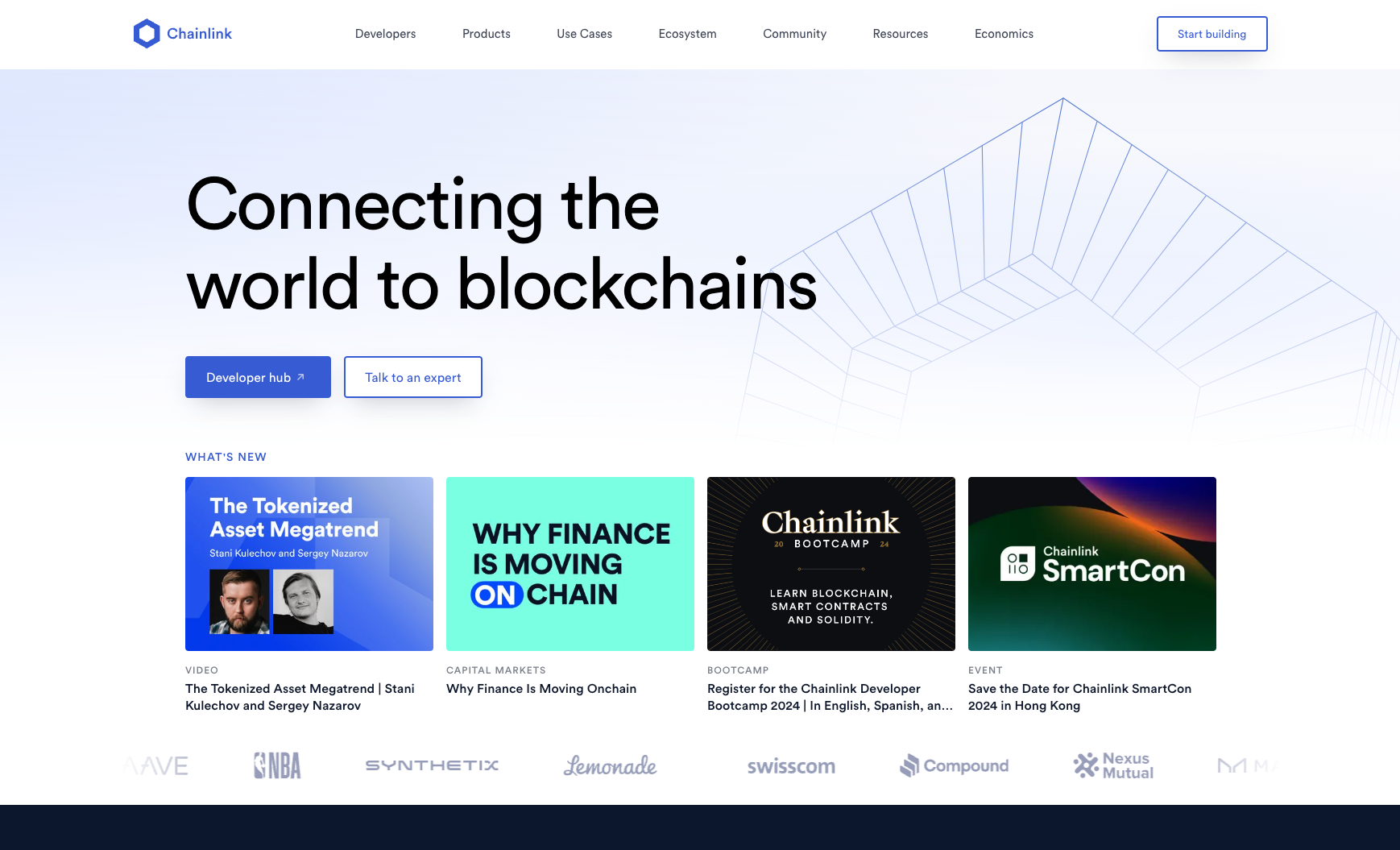
Decentralized Oracles for Secure Data Feeds: Chainlink revolutionizes how wallets interact with blockchain data, leveraging its decentralized network of oracles to provide secure, reliable access to external data sources. This integration is crucial for wallets that require real-time price feeds, transaction statuses, or any off-chain data to support operations across various cryptocurrencies and smart contracts. The trustworthiness of Chainlink's data, sourced from multiple independent providers and aggregated to ensure accuracy, empowers wallet applications with the confidence to execute transactions based on the most current and reliable information.
Empowering Wallets with Advanced Functionalities: Beyond basic data provision, Chainlink introduces advanced functionalities into multi-chain wallets, such as automated transaction execution based on predefined conditions and secure interactions with complex smart contracts. These capabilities enable wallets to offer more sophisticated services, including conditional payments and automated portfolio rebalancing, enhancing the user experience. Developers appreciate Chainlink's comprehensive documentation and community support, which streamline the process of integrating these advanced features into wallets, making sophisticated blockchain interactions more accessible.
Chainlink's role in providing accurate, decentralized data feeds and enabling advanced smart contract functionalities positions it as a critical tool for developers seeking to innovate within the wallet space. Its commitment to security and reliability addresses some of the most pressing challenges in developing multi-functional, multi-chain wallets, setting a new standard for what users can expect from their digital asset management tools.
Covalent: Streamlining Wallet Functionality Across Chains
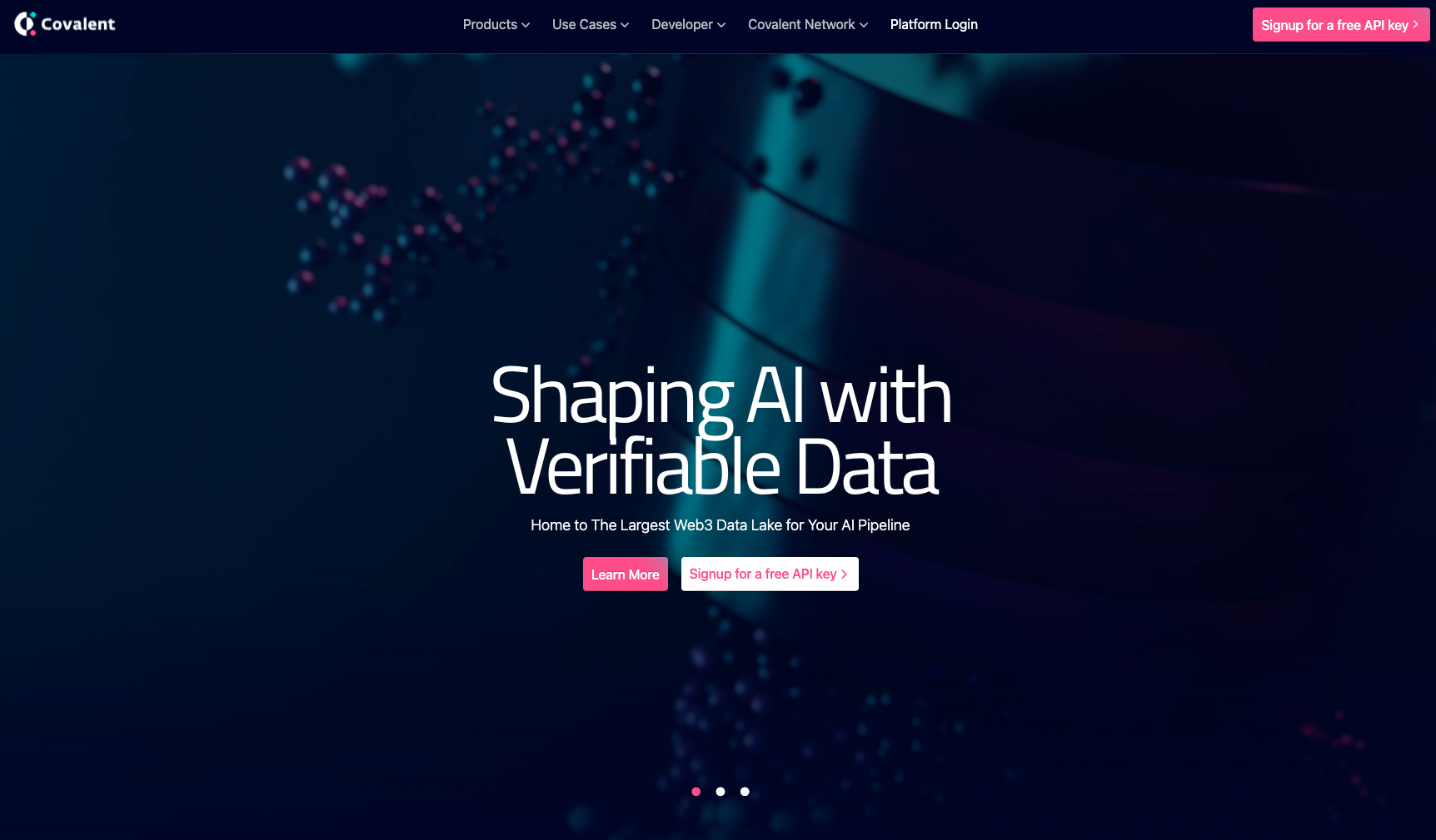
Unified Data Layer for Comprehensive Insights: Covalent offers a single, unified API that provides detailed, granular blockchain data across multiple networks, making it an invaluable resource for multi-chain wallets seeking deep market insights and user transaction history. This API excels in compiling data from various sources into a coherent format, enabling wallets to present a comprehensive view of a user's assets, transaction details, and interactions with DeFi protocols across different blockchains. Such depth of information supports enhanced decision-making and a richer user experience, allowing for a more informed portfolio management approach.
Facilitating Advanced Analytics and User Experience: With Covalent, wallets gain the ability to not only track basic asset information but also analyze historical transaction data, wallet balances across different tokens, and user interactions with smart contracts. This capability is particularly beneficial for users engaged in complex DeFi ecosystems, where understanding past transactions and positions can inform future strategies. Covalent's emphasis on ease of integration, backed by extensive documentation and developer support, ensures that adding such sophisticated analytics to wallets is as straightforward as possible, minimizing development time while maximizing functionality.
Covalent's comprehensive approach to data aggregation and its focus on delivering actionable insights directly into users' wallets transform the way users interact with their assets across chains. By providing a detailed understanding of one's portfolio and market positions, Covalent empowers wallet developers to create more intuitive and powerful tools, ultimately enhancing the overall utility and user experience of multi-chain wallets.
The Graph: Empowering Wallets with Decentralized Data Indexing
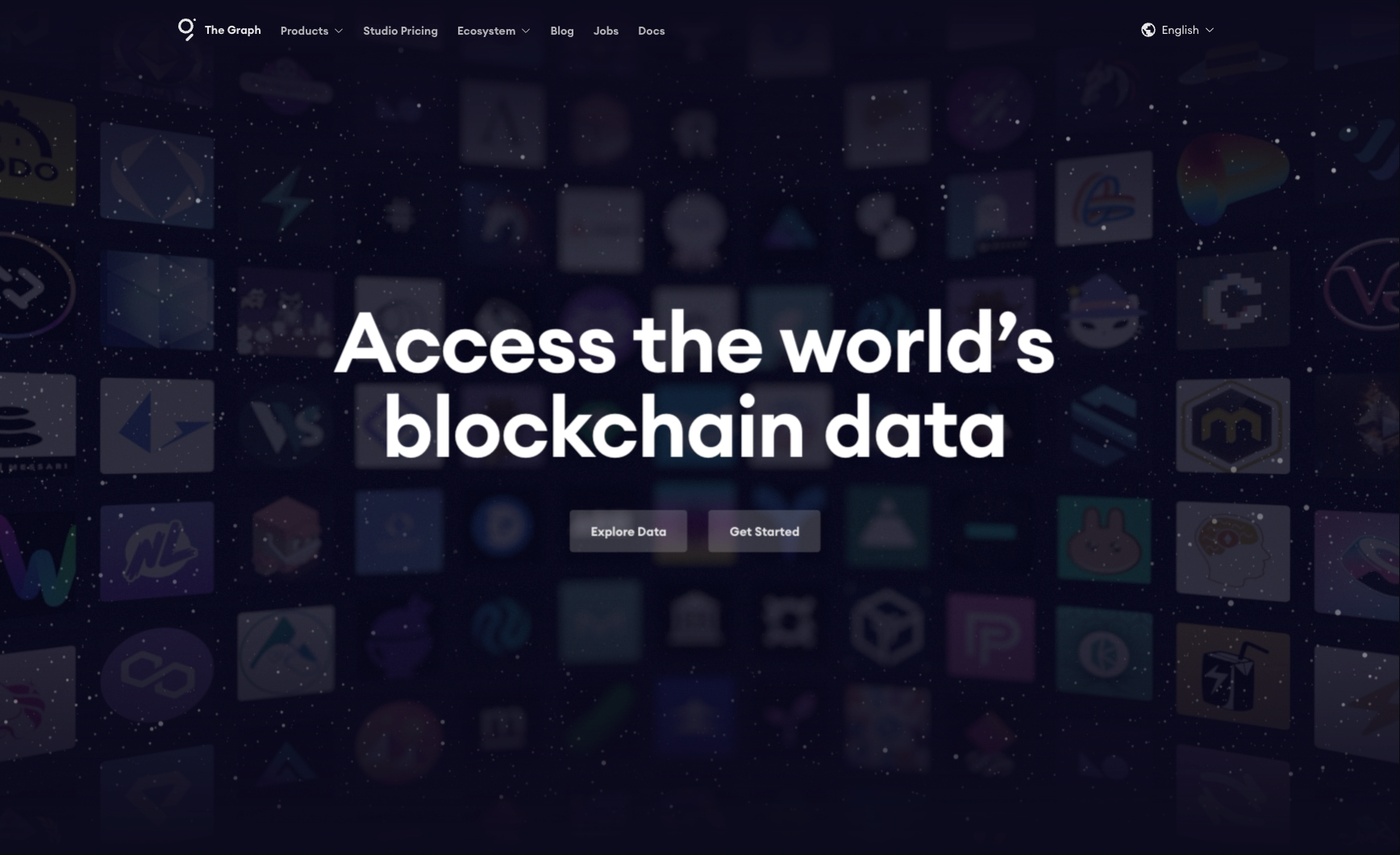
Decentralized Querying for Real-Time Data: The Graph revolutionizes data access for multi-chain wallets by offering decentralized indexing and querying capabilities. Its protocol allows wallets to efficiently retrieve real-time data from various blockchains, including transaction details, token balances, and smart contract interactions. By decentralizing data indexing, The Graph ensures that wallets can access reliable and up-to-date information without relying on centralized intermediaries, enhancing both security and reliability.
Enabling Customized Wallet Experiences: With The Graph, wallets can create tailored experiences for users by querying specific data points relevant to their assets and transactions. Whether it's tracking portfolio performance, monitoring token balances, or analyzing transaction histories, The Graph empowers wallets to present users with personalized insights and analytics. This customization enhances user engagement and fosters a deeper understanding of their cryptocurrency holdings and activities across different chains.
The Graph's decentralized approach to data indexing and querying is a game-changer for multi-chain wallets, offering unprecedented access to real-time blockchain data while maintaining the principles of decentralization and user privacy. By leveraging The Graph's protocol, wallets can unlock a new level of customization and functionality, providing users with a seamless and intuitive experience in managing their digital assets across multiple chains.
CoinGecko API: Your Comprehensive Market Data Solution
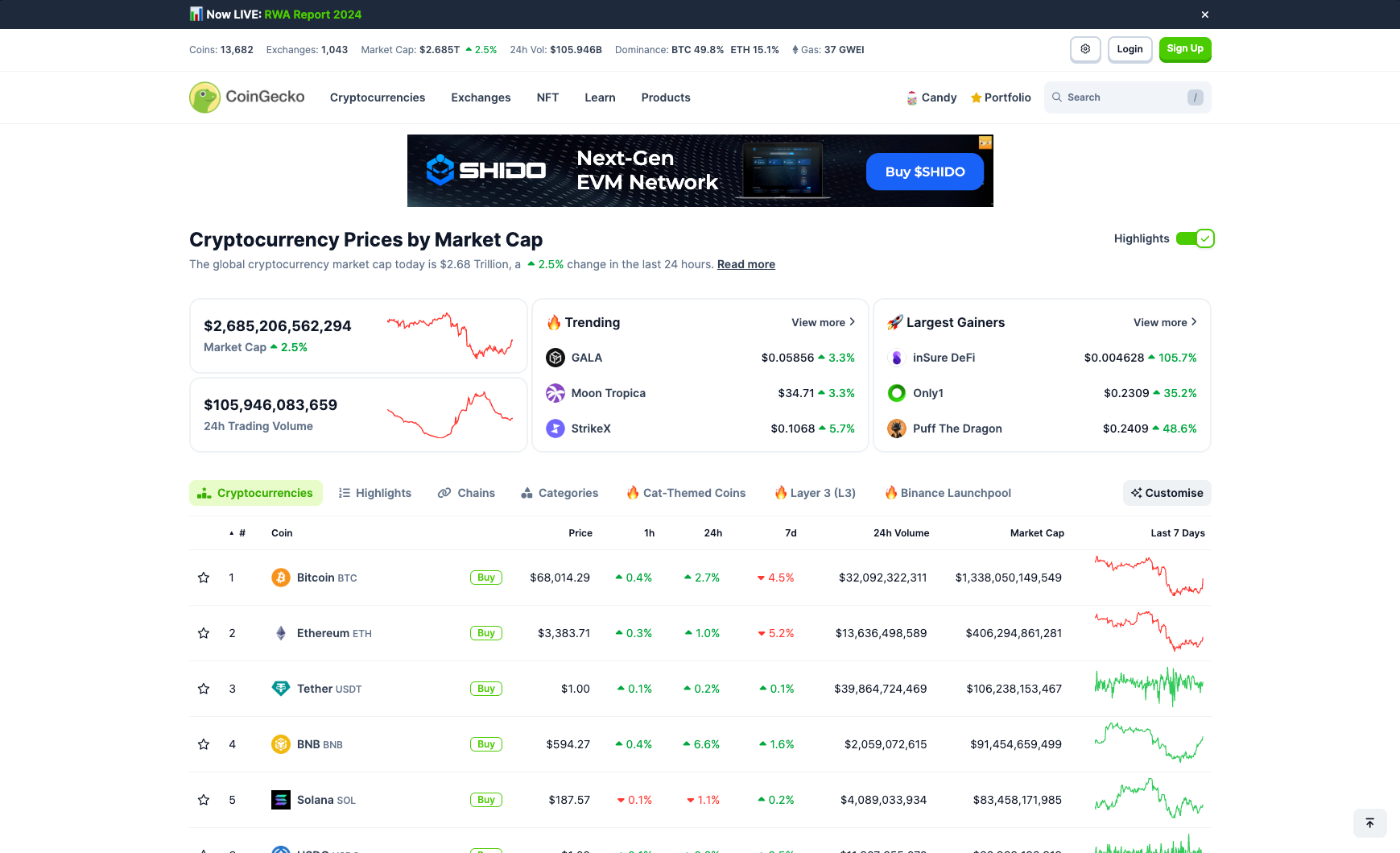
A Wealth of Market Insights: CoinGecko API stands as a powerhouse for market data, offering a comprehensive suite of information on cryptocurrencies, tokens, and exchanges. Its extensive coverage includes real-time prices, historical data, trading volumes, and market capitalization across a wide array of assets. For multi-chain wallets, access to such comprehensive market insights is invaluable, enabling users to make informed decisions about their asset allocations and trading strategies across different blockchains.
Global Exchange and Token Coverage: CoinGecko API's expansive database includes data from a multitude of exchanges and tokens, providing users with a holistic view of the cryptocurrency market. Whether it's tracking the performance of popular cryptocurrencies like Bitcoin and Ethereum or monitoring the latest trends in the decentralized finance (DeFi) sector, CoinGecko API ensures that wallets can access the most relevant and up-to-date market information across various chains.
Empowering Decision-Making: By leveraging CoinGecko API's rich dataset, wallets can offer users advanced analytical tools and insights to support their decision-making processes. From price trend analysis to liquidity tracking and market sentiment indicators, CoinGecko API equips wallets with the data needed to navigate the complexities of the crypto market with confidence. This empowers users to stay informed and proactive in managing their digital assets across multiple chains.
CoinGecko API serves as a vital resource for multi-chain wallets, providing comprehensive market data solutions that enable users to stay ahead of the curve in the dynamic world of cryptocurrency. Its extensive coverage, robust features, and user-friendly interface make it a go-to option for wallets seeking to enhance their market analysis capabilities and deliver added value to their users.
Messari API: Unleashing Crypto Market Intelligence
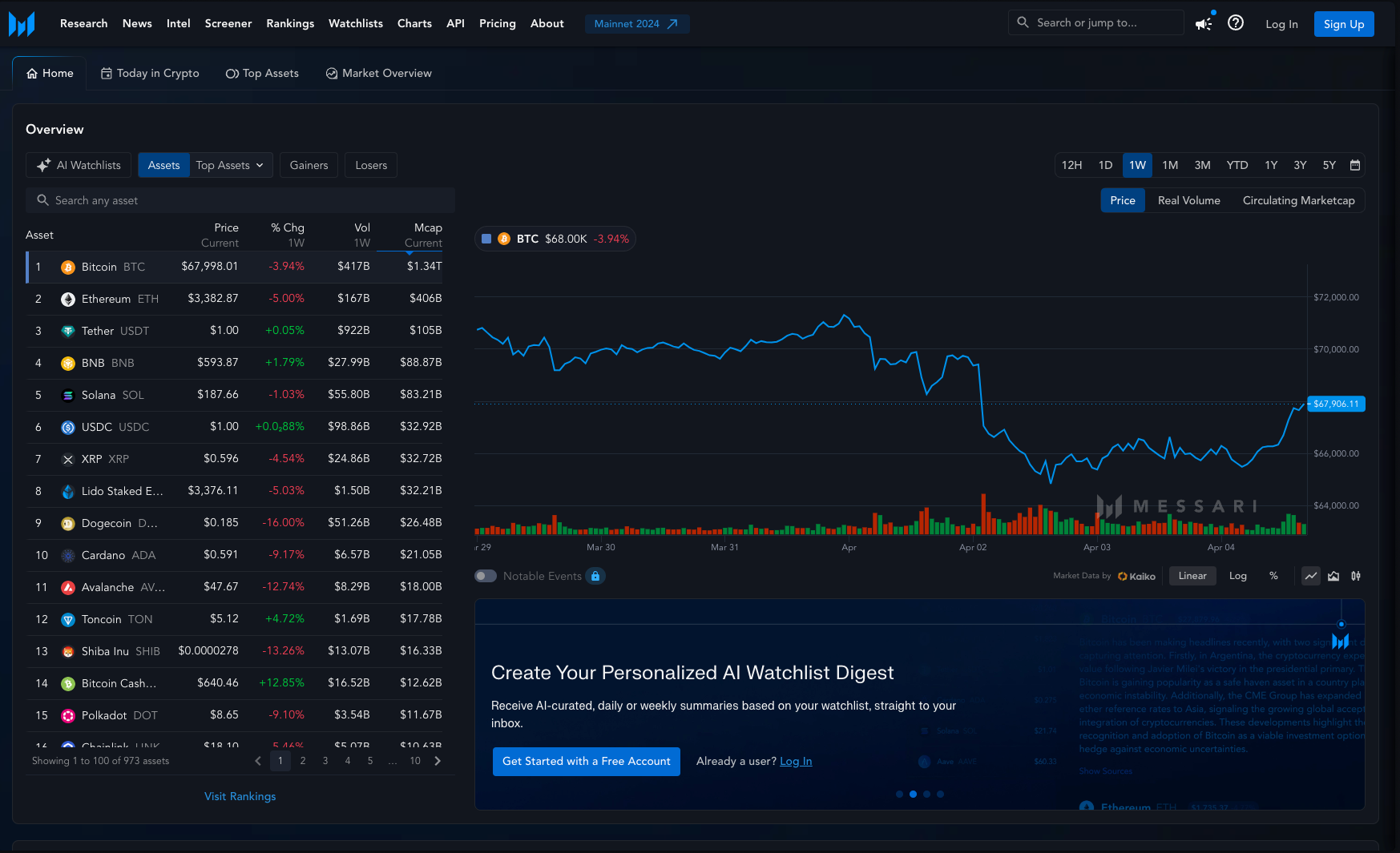
Comprehensive Market Coverage: Messari API offers a comprehensive suite of market data solutions, providing access to a wealth of information on cryptocurrencies, tokens, and exchanges. With detailed metrics such as price, volume, market capitalization, and on-chain data, Messari API empowers multi-chain wallets to offer users a comprehensive view of the cryptocurrency market across various blockchains.
Advanced Analytics and Insights: Beyond basic market data, Messari API enables wallets to provide users with advanced analytics and insights to support their investment decisions. Whether it's analyzing token fundamentals, tracking network activity, or monitoring market sentiment, Messari API equips wallets with the tools needed to empower users to make informed decisions about their digital asset portfolios across different chains.
Secure and Reliable Data: Security and reliability are paramount in the world of cryptocurrency, and Messari API delivers on both fronts. With robust data validation mechanisms and reliable uptime, Messari API ensures that users can trust the data provided by their wallets, giving them peace of mind as they navigate the complex and ever-changing landscape of the crypto market.
Messari API stands as a trusted partner for multi-chain wallets, offering comprehensive market data solutions that enable users to stay informed and make confident decisions about their digital assets across various blockchains. Its commitment to security, reliability, and advanced analytics makes it a valuable asset for wallets seeking to enhance their market intelligence capabilities and deliver added value to their users.
Alchemy API: Powering Multi-Chain Wallets with Scalable Infrastructure
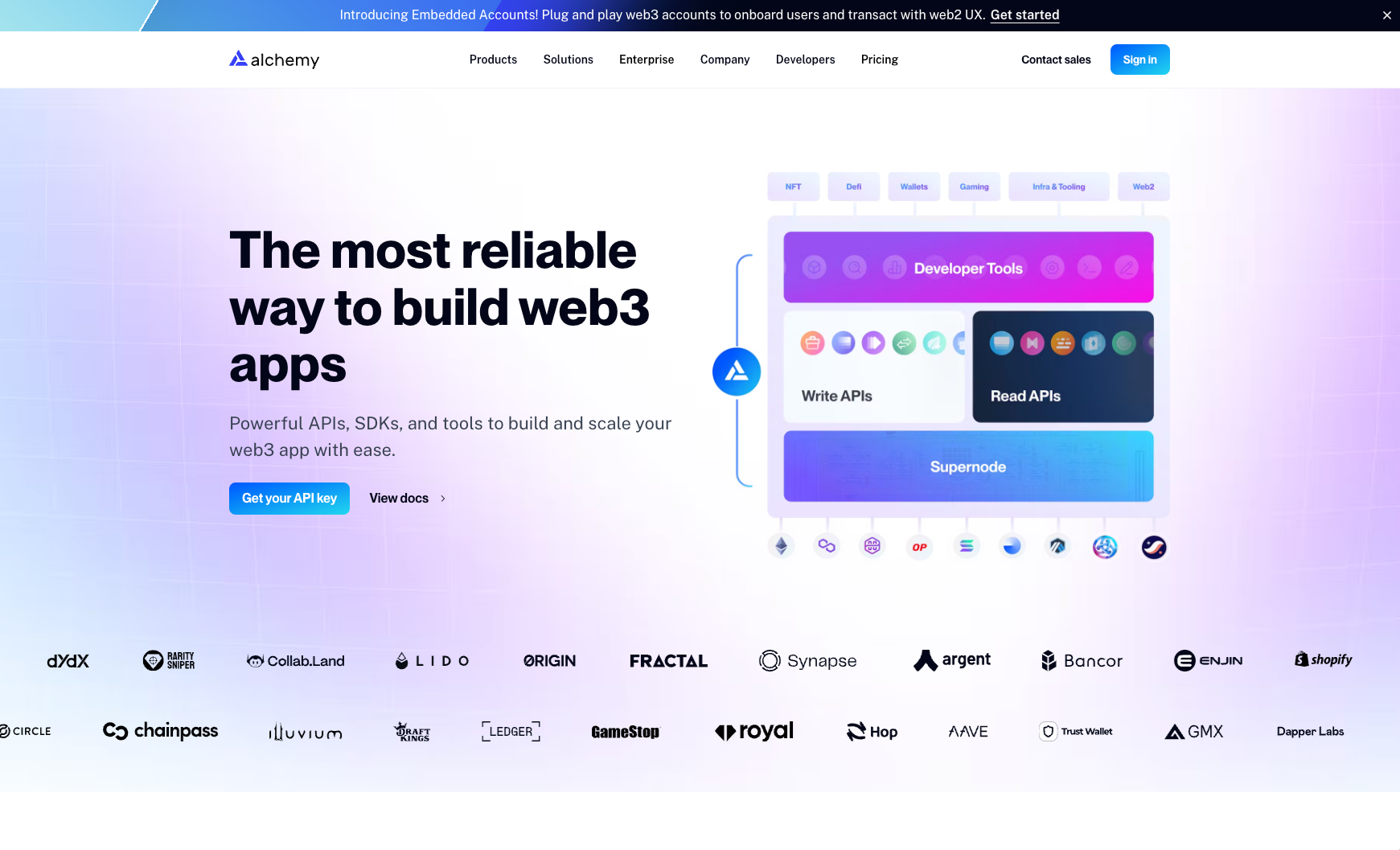
Scalable and Reliable Infrastructure: Alchemy API provides a robust infrastructure backbone for multi-chain wallets, offering scalable and reliable access to blockchain data and services. With its high-performance architecture and distributed network, Alchemy API ensures that wallets can handle large volumes of transactions and data requests without compromising on speed or reliability, even during peak usage periods.
Comprehensive Blockchain Coverage: Alchemy API supports a wide range of blockchain networks, including Ethereum, Binance Smart Chain, and many others, enabling wallets to access data and services across multiple chains from a single integration point. This comprehensive blockchain coverage ensures that users can manage their assets seamlessly across different networks, without the need for multiple wallets or platforms.
Developer-Friendly Tools and Documentation: Alchemy API is designed with developers in mind, offering a suite of developer tools, APIs, and comprehensive documentation to streamline the integration process. Whether it's querying blockchain data, executing transactions, or interacting with smart contracts, Alchemy API provides the tools and resources developers need to build powerful and feature-rich multi-chain wallets quickly and efficiently.
Alchemy API empowers multi-chain wallets with scalable infrastructure, comprehensive blockchain coverage, and developer-friendly tools, enabling them to offer users a seamless and intuitive experience for managing their assets across multiple chains. Its focus on scalability, reliability, and ease of integration makes it a valuable asset for wallets looking to provide users with a robust and feature-rich multi-chain experience.
Selecting the Right Multi-Chain Wallet API for Your Needs
Choosing the right multi-chain wallet API is crucial for ensuring that your wallet application meets the needs of both developers and end-users. Here are some key factors to consider when making your selection:
- Blockchain Compatibility: Ensure that the API supports the blockchains and tokens relevant to your project's requirements. Look for broad compatibility across multiple chains to future-proof your application.
- Security Features: Prioritize APIs with robust security measures in place, such as encryption protocols, secure authentication methods, and data validation mechanisms, to safeguard user assets and data.
- Functionality and Features: Assess the API's functionality, including transaction capabilities, smart contract interactions, and analytics tools, to ensure that it aligns with your project's objectives and user expectations.
- Ease of Integration: Choose an API with comprehensive documentation, developer tools, and active support communities to simplify the integration process and accelerate development.
- Performance and Reliability: Look for APIs with high uptime, low latency, and the ability to handle large transaction volumes efficiently to deliver a seamless user experience.
By carefully evaluating these factors and aligning them with your project's specific requirements, you can select a multi-chain wallet API that provides the functionality, security, and scalability needed to support your application's success.
Conclusion
In conclusion, the availability of multi-chain wallet APIs opens up a world of possibilities for developers and users alike, enabling seamless interaction with digital assets across multiple blockchain networks. These APIs serve as the backbone of multi-chain wallet applications, providing essential functionalities such as transaction processing, asset management, and analytics tools. By selecting the right API for your project's needs, you can unlock the full potential of multi-chain wallets, offering users a secure, feature-rich, and intuitive experience for managing their digital assets across diverse blockchain ecosystems.
Additional Resources and Learning
To further enhance your understanding and proficiency in integrating multi-chain wallet APIs into your project, consider exploring the following resources:
- Official Documentation: Dive into the official documentation of the selected API for detailed integration guides, API reference documentation, and best practices.
- Developer Communities: Engage with developer communities, forums, and social media groups dedicated to blockchain development to exchange ideas, seek advice, and collaborate with peers.
- Online Tutorials and Courses: Explore online tutorials, courses, and workshops covering topics such as blockchain development, API integration, and decentralized finance (DeFi) to expand your knowledge and skills.
- Technical Blogs and Whitepapers: Stay updated with the latest trends, developments, and innovations in multi-chain wallet technology by reading technical blogs, whitepapers, and research papers from industry experts and thought leaders.
By leveraging these resources and continuously expanding your knowledge, you can enhance your proficiency in developing and deploying multi-chain wallet applications, driving innovation and adoption in the dynamic and rapidly evolving world of blockchain technology.




